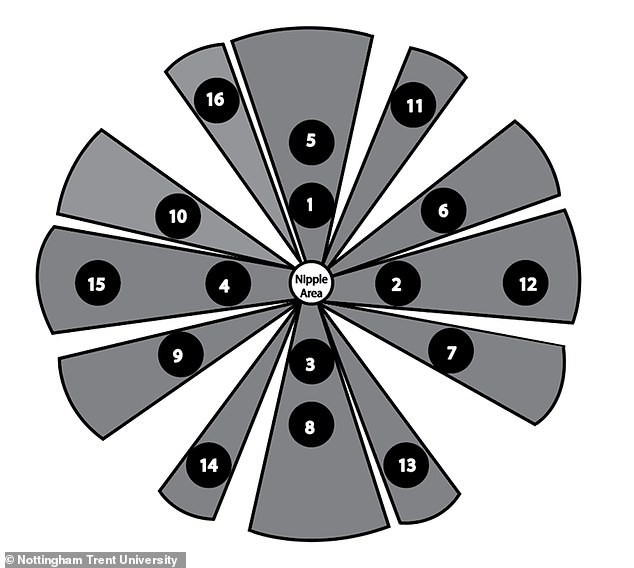Can a Bra Detect Breast Cancer and Transform Screening for High-Risk Women
A wearable device which attaches to a bra could help detect breast cancer more quickly in a certain group of high risk women. British scientists, who developed the 'smart bra', believe the tech will detect tumours as small as 5mm, which may be missed in between mammogram screenings. For most women, routine breast screening appointments — which occur every three years for over 50s or earlier among those at higher risk of the disease — detect tumours before they become hard to treat, meaning they don't require extra scans. But women with intellectual disabilities, who suffer limitations to cognitive function and skills, are at far higher risk of dying of breast cancer or being diagnosed at a later stage. Research suggests this is because they are significantly less likely to attend screenings due to lack of awareness, fear of the procedure, embarrassment and inadequate support. Now, scientists at Nottingham Trent University and the University of Glasgow, say the device may help this group by monitoring whether a tumour is growing in real time and alerting doctors to potential risks. Currently still in development, they hope it will then trigger medics to arrange other scans to be taken, such as an MRI, an earlier diagnoses giving women a better chance of survival. Professor Yang Wei, an expert in wearable technology at Nottingham Trent University, said: 'This technology has the potential to save women's lives by detecting tumours early, while being used as an added measure alongside all other normal checks and scans.' Sign up for our free Health newsletter Transform your health every Tuesday with expert guides, real-life stories and advice from top doctors By signing up, you will receive our newsletter as well as marketing emails with news, offers and updates from the Daily Mail. You can unsubscribe at any time. For more information, see our Privacy Policy. The technology, which contains 16 electrodes and sits over the nipple area, uses a form of electrical current that can scan to spot subtle differences in body tissues.

In This Article:
Targeting a High-Risk Group The Smart Bra for Women with Intellectual Disabilities
Women with intellectual disabilities, who suffer limitations to cognitive function and skills, are at far higher risk of dying of breast cancer or being diagnosed at a later stage. Research suggests this is because they are significantly less likely to attend screenings due to lack of awareness, fear of the procedure, embarrassment and inadequate support. The researchers say the device could help this group by monitoring whether a tumour is growing in real time and alerting doctors to potential risks, potentially triggering earlier scans such as MRI and giving women a better chance of survival. 'This technology has the potential to save women's lives by detecting tumours early, while being used as an added measure alongside all other normal checks and scans.'

How the Smart Bra Works and What It Could Replace
The device contains 16 electrodes and sits over the nipple area, using a form of electrical current that can scan to spot subtle differences in body tissues. As MRI scans can be months apart, patients could be given better peace of mind by knowing that any growth between monitoring appointments would be picked up. 'We hope in the future that this technology could reduce the need for many other checks, such as MRI, ultrasound and mammograms, and in doing so create efficiencies for health services.' The 'smart textile technology' will also be small enough to allow patients to slip it into their bra, meaning they can continue to wear their own bra of choice, but can form part of a new bra altogether. The technology will log data internally and also transmit to a smartphone app for processing. 'The device will alert the wearer if an abnormality is detected, even without a smartphone connection,' Professor Wei also told the Daily Mail. 'Integrating healthcare data with NHS patient records is a complex process but ultimately the goal is to streamline this data into individual patient records for analysis.'

Trials and NHS Rollout for Intellectual Disabilities
Trials of the device will begin before the end of the year and scientists hope the technology could soon be rolled out for women with intellectual disabilities on the NHS.

Breast Cancer in the UK and US and Survival Rates
One in seven women in the UK are diagnosed with breast cancer in their lifetime—around 56,000 a year—making it the most common cancer in the UK. The figure stands at roughly 300,000 annually in the US. Around 85 per cent of women diagnosed with breast cancer survive more than five years.


